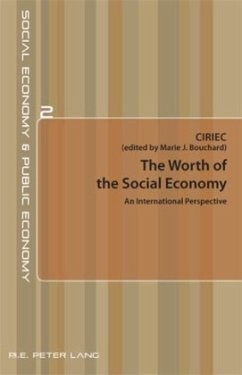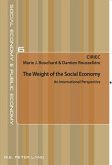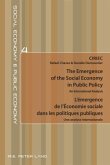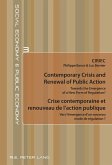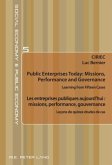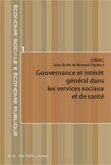What is the worth of the social economy? What worth does the social economy produce?
Co-operatives, not-for-profit and mutual benefits organizations as well as foundations share common values that colour the way they perform and how they manage to do so. Yet, little is known about how the social economy is actually being evaluated, and how evaluation may reinforce or weaken this specificity.
This book fills a gap in the literature about the social economy. It seeks to make a critical assessment of the interests to which the social economy of today must cater and for which questions of evaluation appear to be the most telling.
A first set of contributions is made up of four theoretical papers inspired by various disciplinary fields: management, economy, sociology, philosophy. A second set of contributions is composed of seven national analyses of how the social economy is evaluated in different institutional contexts: France, Québec (Canada), United Kingdom, United States, Brazil, Portugal and Japan. The conclusion of the book summarizes the findings of this study and formulates some questions addressed to policy designers, evaluation specialists and social economy actors.
Co-operatives, not-for-profit and mutual benefits organizations as well as foundations share common values that colour the way they perform and how they manage to do so. Yet, little is known about how the social economy is actually being evaluated, and how evaluation may reinforce or weaken this specificity.
This book fills a gap in the literature about the social economy. It seeks to make a critical assessment of the interests to which the social economy of today must cater and for which questions of evaluation appear to be the most telling.
A first set of contributions is made up of four theoretical papers inspired by various disciplinary fields: management, economy, sociology, philosophy. A second set of contributions is composed of seven national analyses of how the social economy is evaluated in different institutional contexts: France, Québec (Canada), United Kingdom, United States, Brazil, Portugal and Japan. The conclusion of the book summarizes the findings of this study and formulates some questions addressed to policy designers, evaluation specialists and social economy actors.

